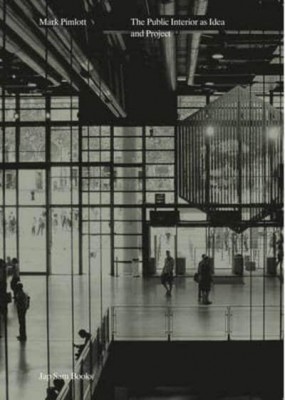By Mark Pimlott
The interior is that space that architecture makes, which is at once set apart from the world and in its midst. Regardless of its scale, whether that of a dwelling, a temple, a settlement, a city or a continental territory, the interior is informed and shaped by ideas. These ideas appear in architecture and in the great variety of its interiors that we take to be public: those within which we consider ourselves to be free individuals, and where we see ourselves among others; those within which we are conscious of our place in society and in the world. Public interiors have been designed to affect and condition our consciousness and our behaviour, our relations to others and to authority.
The structure of this publication by Mark Pimlott originates from a series of lectures called 'Fundamentals' given to students of the course 'The Architecture of the Interior' at Delft University of Technology, which concerned public interiors in the West through history, and significant ideas that had contributed to their realisation and their reception.
Rather than attempting an encyclopaedic overview, the author proposed six potent interpretive themes—the Palace, the Garden, the Ruin, the Shed, the Network and the Machine—through which many exemplary interiors could be considered, so that the public interior might become more available to the imaginations of those who design them. All together here, the chosen exemplars form a kind of canon of the public interior. Submitted to interpretation in the context of these themes, they offer another lens through which they might be seen: as manifestations of ideas inscribed within material culture.
Heijningen, 2015, 24 x 17 cm, 176pp, illustrated, Paperback.
